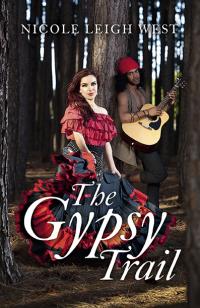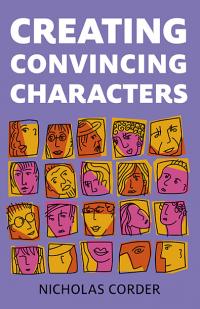
 My career as a writer actually began thanks
to a writing group. In 2004, the company I worked for added a set of general interest newsgroups to its intranet, a bit like internet forums for discussing hobbies and random chat over lunchtimes and
coffee breaks. How they stayed running given the amount of time some people spent on there I'll never know, but I'm glad they did because if they hadn't, no one would have had the bright idea of
setting up a writing group.
My career as a writer actually began thanks
to a writing group. In 2004, the company I worked for added a set of general interest newsgroups to its intranet, a bit like internet forums for discussing hobbies and random chat over lunchtimes and
coffee breaks. How they stayed running given the amount of time some people spent on there I'll never know, but I'm glad they did because if they hadn't, no one would have had the bright idea of
setting up a writing group.
The idea of being a writer had always appealed to me. So when one of the members suggested a fortnightly writing challenge — someone picks a title and you have two weeks to write whatever comes to mind — I decided to have a go. And even though I never got to meet the other members face to face (this was a big company with sites all over the country) it made the whole thing much more rewarding, knowing that people would actually be reading what I'd written within days of my writing it, and what's more, coming back with comments and suggestions. The alternative of sitting at home filling a screen with words which wouldn't be read for months, if at all, felt pretty bleak by comparison.
As it turned out, there was another benefit too — my first published piece, a short, sharp, horror story, which got a very positive response within the group and was accepted by a short fiction magazine just weeks later, when other members told me I should send it out. Not many writers can say they got a sale at their first ever attempt, yet without the impetus from that group, albeit a loose, informal group scattered across the country, it would never have happened.
Not long afterwards though I had the opportunity to join a more conventional face-to-face group. It was a chance encounter that got me into it; I met the husband of someone my wife was on a course with, and it turned out he was a writer too. At which point he told me about this London-based group he was a member of, and suggested I give it a try.
The group is called "The T-Party" and I've been a member ever since (albeit an absentee member for the past two years due to children and house moves). Overall though the whole experience has been immensely valuable, for a number of reasons.
First of all, and the obvious one I suppose, is the chance to improve my writing.
My group is primarily a critique group, and I should point out that what I'm about to describe is just how our group works; there are many different ways of doing this which I'll mention later on, and they all have strengths and weaknesses. But in our case we meet up once a month in a pub in London on a Saturday afternoon (we pick pubs with backrooms we can book to get some peace and privacy). Prior to each meeting, anyone who wants something checked out will email it round the group (at least 2 weeks ahead). Then, once we meet we go round the table with each person saying what they thought of it. We have a maximum of three stories per meeting, and a maximum total word count of 30,000. As a result we mainly do short stories (but someone could submit the opening of a novel if they wanted) and the emphasis is on honest crit — the group isn't there to make people feel good regardless of how good or bad their work is, but rather to let people know what needs fixing so they can make it the best they can. But at the same time no one will ever unfairly denigrate someone else's work; it's not about that either.
And in our group, if someone has anything bigger they want read, like a finished novel, they can put out a call for volunteers to read it, then arrange their own get together outside of the usual monthly schedule. Usually people do this after having put the opening (e.g. first three chapters) through the regular group meetings, so that potential volunteers can decide if they want to read the whole thing. (The reason we let people critique novel openings, specifically chapters one to three, is that when eventually submitting to agents and publishers, your initial approach often consists of those first three plus a synopsis, so they have to give a good impression all on their own.)
As I said though, that's just how our group works. That round-the-table crit process (with additional rules like a time limit per person if there's a lot to get through, plus the fact that the author has to wait until last to reply to any points) is called "The Milford Method", and came out of the Milford workshop sessions. There are other ways of doing it though — for example in some groups people bring material to read out loud rather than sending it round in advance. It takes longer, but reading your own work aloud is sometimes the only way to really judge how it flows.
Another note about some writing groups, including ours: we have an entry requirement, namely that you've either had something published already, which can include a short story in a small-press magazine (which luckily I had), or that a writing sample emailed round the group is voted as being good enough. It sounds tough, but it helps to keep the overall standard of advice high if everyone is up to the same level. Other writing groups don't do that kind of thing, but that doesn't mean they're no good — they just run things a different way. When I put work through the group, I've learned over time which members "get" me more than others and are more receptive to my kind of writing, and for me personally that spread of opinions probably counts as much as who has or hasn't passed the test to get in.
Another very important point on critique groups: you are under no obligation to act on every suggestion you get (because in a decent sized group, there will be a lot of differing comments and views coming your way). Some people don't like the idea of critique groups at all, because you end up with stories effectively written by groupthink, but I think it's valuable as long as you're very selective about what ideas you go with. For me, if someone suggests something and my gut reaction is "I wish I'd thought of that," then I'll use it. Or if it's pretty much unanimous that something I did needs changing, I'll do that too. But if there's a wide range of views I remind myself that any published story will get a range of reactions too, and you can't please everybody. (But I still keep a special ear open for my "key" critiquers, whose advice has been most valuable in the past). And finally, I always remind myself that it is my work, written the way I want it in my own style, and if someone else's critique is ultimately just a way of saying that they would have done it differently, then that doesn't mean that their way is any better or worse than mine. No story is ever perfect — if the critique process helps a writer learn to avoid flaws and pitfalls, and the best ways to develop ideas into finished stories, what comes out of that process will still be heavily influenced by their personal style, which no critique process should ever attempt to erase.
In fact some people take a middle ground between advocating and opposing the critique process. They say that group critique is valuable when a writer is starting out, and still making clumsy mistakes, but gets less valuable later on once they have developed their style into a form they're happy with, i.e. they are still writing imperfect stories, but trying to act on other people's suggestions would start to wear down the things that make their work unique. There may be some merit in that, but the counterargument is that in writing, as with so many things, you never stop learning. For instance even an experienced writer should expose themselves to critique; they should simply filter out anything that amounts to differences in personal style.
One thing that took me by surprise a couple of years ago was the success of a story which I never got round to critiquing, simply because I ran out of time (it was for an annual contest whose deadline was looming, and I figured I'd send the story in its original form, then if it failed, put it through the critique group and have a second attempt the following year). So I was more than a little surprised when this story, which no human eyes other than mine had laid eyes on before the contest judges opened it, took the first place prize. This was after years of writing group membership, with real tangible improvements in my work as a result of receiving critique, which I would have done for this story if I'd had time. Does that mean I'm past the point where critique can help me? I don't think so — as I said, you never stop learning — but I now know that all on my own I have a solid grounding in writing work which is good enough for publication.
I mentioned earlier that the chance to improve as a writer is just one of the benefits. One other is the social aspect — writing is such a solitary activity, which suits some people just fine, but we all need to come up for air sometimes, and if writing is a big part of your life, then being able to talk to fellow sufferers (no one else really understands) counts for a lot. If these new friends write the same kind of things as you then they'll read similar things too — all of a sudden you have something else in common. And if you want hints and tips to help with getting published (like hearing that a certain agent has just left their old agency and is actively looking for new clients) then the writers' grapevine is the quickest way to get the news. (One of the T-Party writers has an almost encyclopaedic knowledge of agents and editors, and all the latest developments, which we are only too happy to exploit).
So in summary, writing groups, whether online or face-to-face, are immensely valuable — just filter the advice you get, watch your writing improve, and enjoy the benefits of turning writing from something solitary to something social.
Hailing from London, Will Mitchell is an aeronautical engineer. He writes horror and science fiction, and has published several short stories. He lives in East Sussex with his wife and son.
Buy Paperback: AMAZON UK BARNES & NOBLE HIVE INDIEBOUND
Buy eBook: AMAZON UK BARNES & NOBLE HIVE
This article was first published in The Writer's Wheel Magazine Issue 4
Categories:
0 comments on this article







